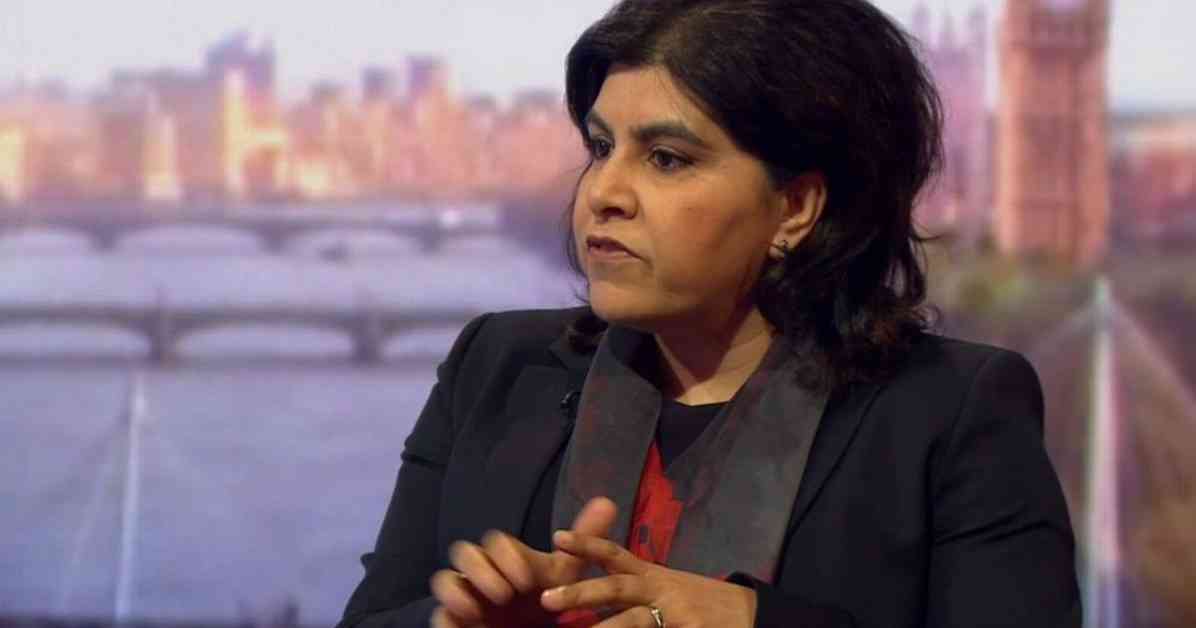Former Conservative Party co-chairwoman Baroness Sayeeda Warsi made headlines recently when she announced her resignation from the party’s whip in the House of Lords. The reason behind her decision was her belief that the party had shifted too far to the right, becoming hypocritical in the process. Lady Warsi, who was Britain’s first Muslim cabinet minister and served in the cabinet during David Cameron’s premiership, expressed her disappointment in the current state of the party.
In a post on social media, Baroness Warsi stated, “It is with a heavy heart that I have today informed my whip and decided for now to no longer take the Conservative whip. This is a sad day for me. I am a Conservative and remain so but sadly the current party are far removed from the party I joined and served in Cabinet.” She further highlighted her concerns about the party’s treatment of different communities, citing hypocrisy and double standards as key issues. Baroness Warsi’s decision to resign from the whip was a reflection of her belief that the Conservative Party had strayed from its values and principles.
One of the factors that led to Baroness Warsi’s resignation was the response from some members of the Conservative Party following the acquittal of Marieha Hussain, who was found not guilty of a racially aggravated public order offence. Baroness Warsi expressed her frustration with the party’s handling of the situation, particularly in light of the divisive language used by certain individuals. She emphasized her commitment to speaking truth to power and standing up for her principles, even if it meant stepping away from the party.
The Conservative Party, in response to Baroness Warsi’s resignation, stated that complaints had been received regarding her use of divisive language. They informed her that an investigation was about to begin earlier in the week. The party reiterated its commitment to investigating all complaints without prejudice, emphasizing the importance of upholding standards of conduct within the party.
Baroness Warsi’s political career has been marked by moments of both triumph and controversy. She was appointed to the House of Lords in 2007 and went on to serve in various government roles, including as a Minister without Portfolio and a foreign minister. However, she resigned from her position in 2014 due to disagreements with the party’s policy on the Israel-Gaza war. Despite her initial support for the Conservative Party, Baroness Warsi later became a critic of the party while still representing them in the House of Lords.
As a prominent figure in British politics, Baroness Warsi’s resignation has sparked discussions about the direction of the Conservative Party and the values it stands for. Her decision to step away from the party’s whip in the House of Lords reflects a growing sense of disillusionment with the party’s policies and actions. It also serves as a reminder of the importance of standing up for one’s beliefs and speaking out against injustice, even in the face of adversity.
Overall, Baroness Sayeeda Warsi’s resignation from the Conservative Party whip has raised important questions about the party’s ideological direction and its treatment of diverse communities. Her decision to take a stand against what she sees as hypocrisy and double standards within the party highlights the challenges facing modern politics and the need for integrity and accountability in leadership. As the political landscape continues to evolve, it is crucial for individuals like Baroness Warsi to uphold their values and principles, even if it means making difficult decisions.

